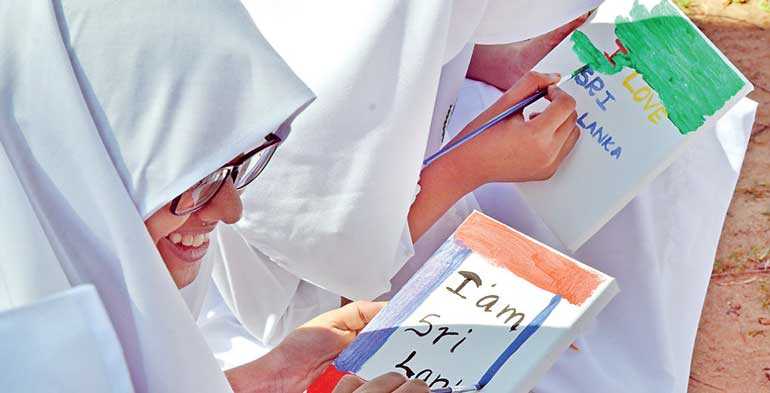Thursday Feb 19, 2026
Thursday Feb 19, 2026
Wednesday, 9 October 2019 00:00 - - {{hitsCtrl.values.hits}}

By Dr. Ruvaiz Haniffa
The UN, through the UNESCO, awards a prize for the promotion of tolerance and non-violence, named the Madanjeet Singh Prize for the Promotion of Tolerance and Non-Violence. The prize is awarded every two years on the International Day for Tolerance and Non-Violence, 16 November. The prize may be awarded to institutions, organisations or persons who have contributed in a particularly meritorious and effective manner to tolerance and non-violence.
This date is also the designated day for the Presidential Election. With the six month anniversary of the Easter Sunday carnage coming up, the need for intolerance among ethnic groups and communities grows exponentially by the hour. We need to use this backdrop to convince all presidential hopefuls of the need for bringing about tolerance by requesting that they consider including a pledge to create an environment and mechanism to foster tolerance in Sri Lanka.
Furthermore, there will be Provincial Council and Local Government elections also held in 2020. These elections have the potential to increase political and ethnic intolerance leading to political violence. This would be a further justification to ask the presidential candidates about their specific plans to deal with such a situation and gain a public commitment to stamp out intolerance by declaring 2020 a Year of Tolerance.
We are in a phase where the memories of the Easter Sunday carnage, which was planned, organised and carried out by a group of misguided Sri Lankan Muslims, are rapidly fading. Their actions which the vast majority (please note the term ‘vast majority’) condemn in no uncertain terms, has resulted in the surfacing of deep mistrust and suspicion of all Sri Lankan Muslims. We as a community are being collectively punished for the actions of a few extremist terrorist who were misguided by a still existing group of fundamentalist Sri Lankan Islamic clergymen.
Very simply, the status quo which prevailed before the Easter Sunday attacks is still prevalent. The difference is that the expression of ideas, concerns and expectations of the majority Sinhalese community with regards to the Sri Lankan Muslim minority is now more open and transparent. This can be an opportunity to address the issue of suspicion and anger towards minorities in general and the Muslim community in particular. Once again it boils down to a question of tolerance at an individual level.
One must understand that the concept of tolerance is not a natural state for humans. It is an attitude and virtue which needs to be cultivated. Research shows that tolerance helps governments maintain law and order and exercise power effectively. Basic tolerance fails to satisfy the moral person; it fails to animate a lively society and it ignores the potential power of tolerance as a virtue.
Let’s summarise in a few sentences the questions which Sri Lanka will need to address in convincing the majority of the need for tolerance: “Why should we tolerate the Muslims and Tamils in the Year of Tolerance? We have tolerated them for thousands of years and see what they have done and continue to do to us? The question should be why can Tamils and Muslims not tolerate us, the majority Sinhalese of this country? Will Sinhalese Buddhists be tolerated in Saudi Arabia for example?”
It is precisely this dialogue which we need to have as Sri Lankans. We may have different ethnic, religious, regional, cultural social and political views, but what ought to be uniting us is the common denominator all of us share – our Sri Lankan identity. This is the first justification we cite for declaring 2020 a Year of Tolerance.
Of course there are much more technically competent experts in the field of tolerance from a sociological perspective but let’s conclude by sharing six practices and attitudes which captures the spirit of tolerance: Empathy, compassion, dialogue, conflict resolution, resilience, teamwork.
Most of these are already part of our diverse religious teachings and cultural practices as Sri Lankans, but for some reason our moral compass has been disrupted by religious, political and ethnic extremists from all sides for personal, political and economic advantage.
Like Lord Buddha said, we need to follow the middle path, and we all should believe that is precisely what we should do. This is the most important justification for calling on the Sri Lankan Government, all presidential candidates and all communities to support the call for declaring 2020 a Year of Tolerance for Sri Lanka.